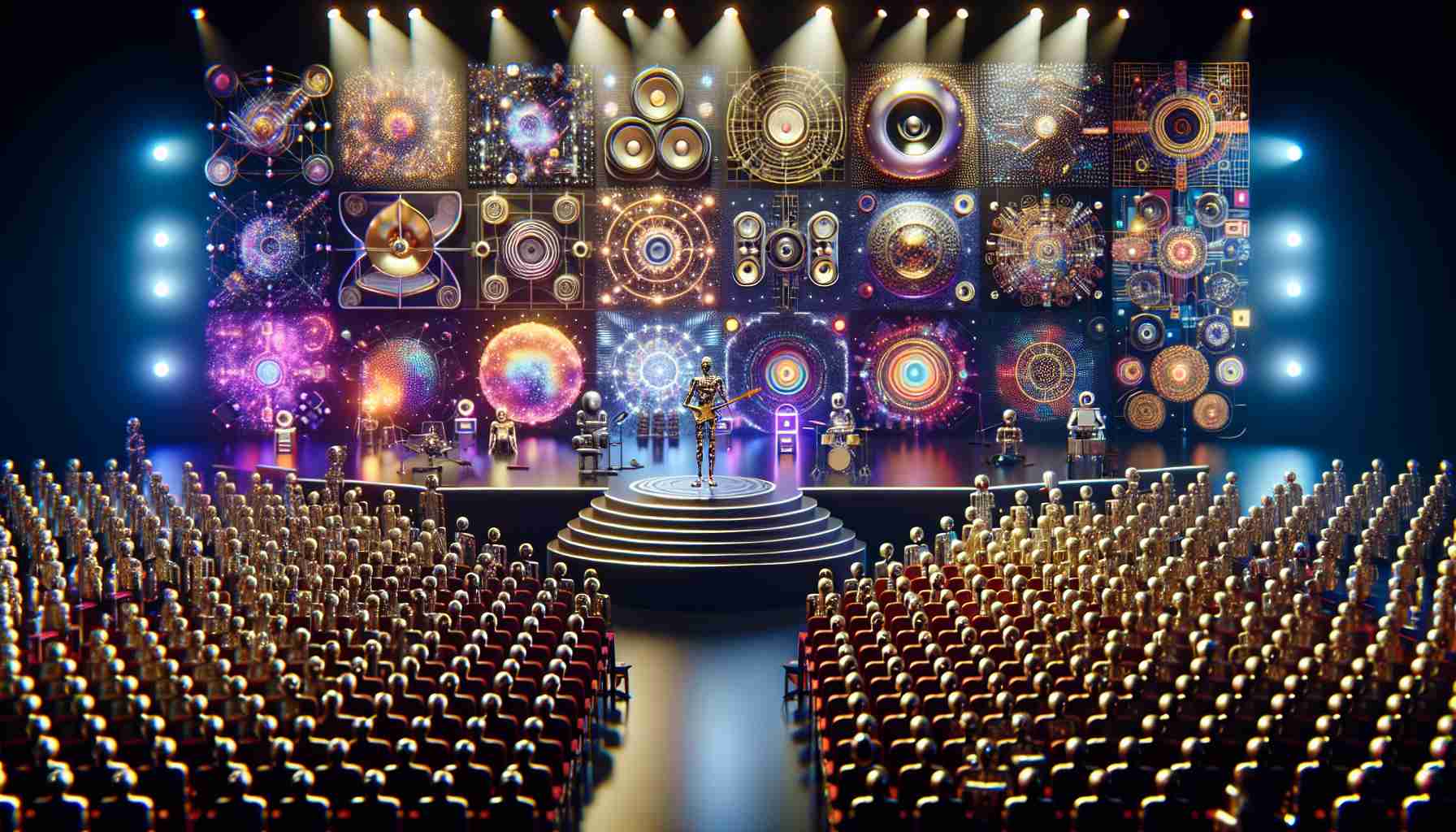
AI Stars Shine at the Grammys? A Glimpse into the Future of Music
- The 67th Grammy Awards will prominently feature AI musicians, illustrating a fusion of technology and creativity.
- AI-generated compositions will harmonize with traditional artistry, promising a fresh and innovative musical experience.
- A notable performance includes a collaboration between a pop superstar and an advanced AI music application, highlighting real-time adaptability.
- The event seeks to spark discussions on AI’s role in democratizing music production and its impact on the music industry.
- The Grammys will spotlight not only musical achievements but also the evolving relationship between technology and artistry.
As we gear up for the 67th annual Grammy Awards, there’s an electrifying buzz sweeping through the music industry. This year, a new wave of performers is set to take center stage, spotlighting a transformative force: Artificial Intelligence (AI) musicians. The boundaries of creativity and technology are blurring, promising an unforgettable spectacle.
Unlike any previous ceremonies, the 67th Grammys will feature performances where AI-generated compositions harmonize with traditional artistry. These AI creations, designed using complex algorithms, offer a fresh aesthetic, appealing to an adventurously evolving audience. Such innovation promises to redefine how we experience and appreciate music, marking a monumental shift for the Grammy’s historical narrative.
A key performance to anticipate is the collaboration between a renowned pop superstar and a cutting-edge AI music application. This fusion aims to showcase AI’s ability to adapt and respond in real-time, creating a dynamic musical dialogue on stage. This unique amalgamation of human and machine talents could set a precedent for the future of live performances.
Beyond individual acts, the Grammys aim to initiate a conversation about AI’s role in the creative process. With technology’s rapidly advancing capabilities, industry experts and artists alike ponder the potential of AI in democratizing music production, making professional-level creation accessible to broader audiences.
As we look towards this futuristic lineup, the 67th Grammys will not only celebrate musical achievements but will also pose intriguing questions about the future of the music industry itself.
AI Musicians Set to Revolutionize the 67th Grammy Awards: What You Need to Know
How is AI Redefining Music at the 67th Grammy Awards?
1. What innovations in AI music technology are being introduced at the Grammys?
The 67th Grammy Awards are set to spotlight a wave of innovations in AI music technology. This includes AI-generated compositions crafted through complex, adaptive algorithms that allow machines to create music harmonizing traditional artistry with digital precision. Noteworthy is the real-time adaptive capability of AI, showcased through collaborations with human musicians, allowing a dynamic interplay during performances. This innovation not only pushes the boundaries of creativity but also makes professional-level music production more accessible to a wider audience.
2. How are industry experts responding to AI’s role in music creation?
Industry experts have mixed yet keen interest in AI’s evolving role in music creation. Some are optimistic, focusing on AI’s potential for democratizing music production, offering tools for all creators irrespective of their resources. However, there are also debates regarding the authenticity and emotional depth that AI can bring to music. The Grammys this year will be pivotal in sparking conversations around these possibilities and challenges, examining how AI might reshape the landscape of artistic expression.
3. What are the potential implications of AI musicians on live performances?
AI musicians are poised to transform live performances by integrating an element of unpredictability and interactivity. A notable feature this year is the anticipated collaboration between a renowned pop superstar and an AI music application, a move that symbolizes the amalgamation of human creativity with AI’s adaptability. This not only sets a new precedent for live shows but also raises questions about the future of artist-audience engagement, potentially increasing audience immersion through tailored, interactive music experiences.
Insights and Predictions
– Trends and Market Analysis: The use of AI in music is trending upward, with growing investments in AI technologies by record labels and streaming services looking to innovate and capture tech-savvy audiences. The potential for custom-created playlists and compositions could reshape consumer demands and expectations in the music industry.
– Security Aspects: As AI technology is integrated into music production, security concerns arise over intellectual property rights and the protection of original content from unauthorized AI-generated replicas. Ongoing discourse about establishing robust frameworks to address these issues is critical as the integration of AI advances.
– Sustainability: AI in music could enhance sustainability by reducing carbon footprints associated with music production and live performances. By leveraging digital platforms and virtual settings, organizations could minimize their environmental impact while maintaining high-quality productions.
Discover More
To explore further about the impact of AI in the music industry and the future of digital innovation, visit the following authoritative sources:
– Grammy
– Pitchfork
– Billboard
Comments (0)